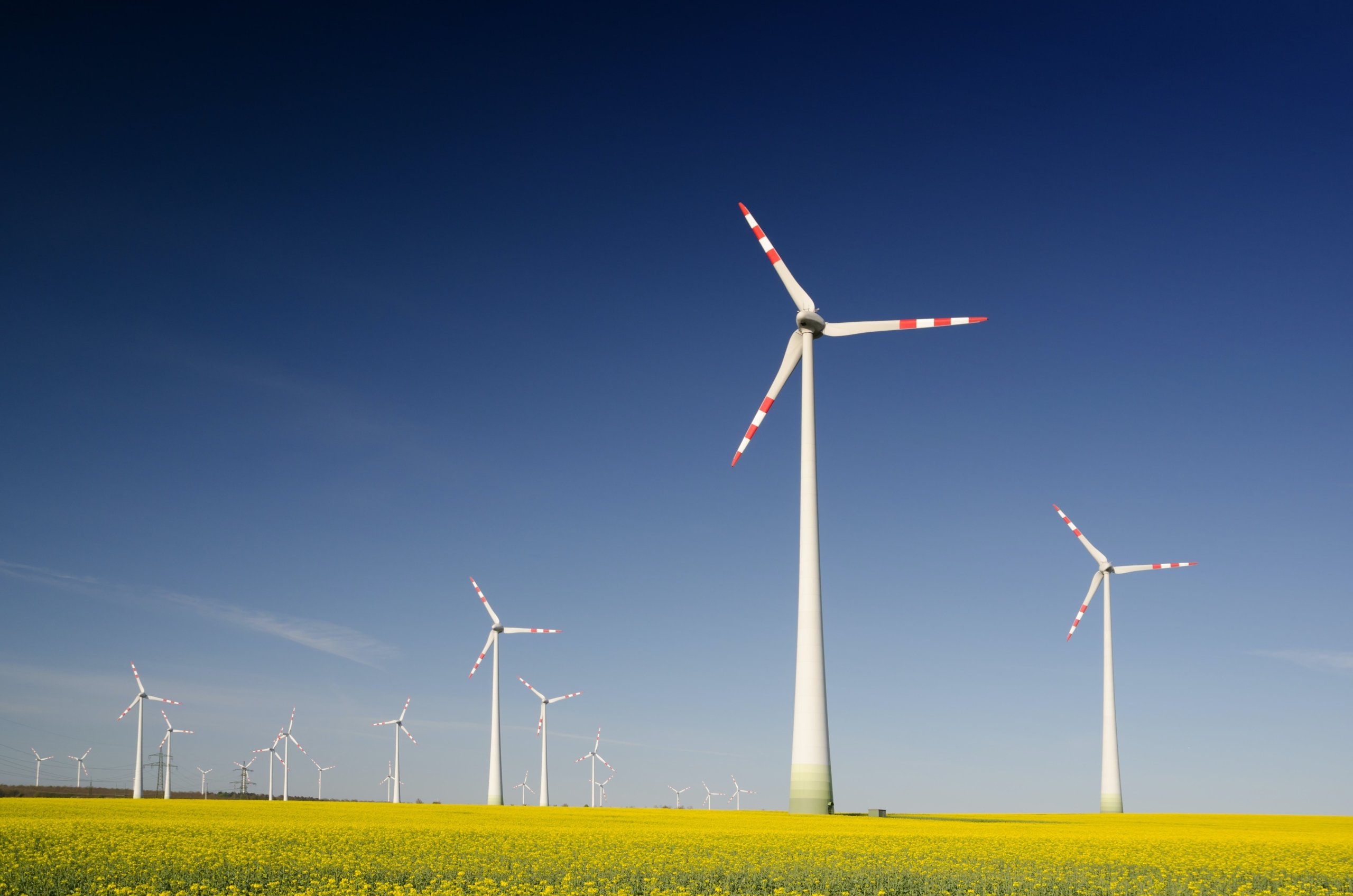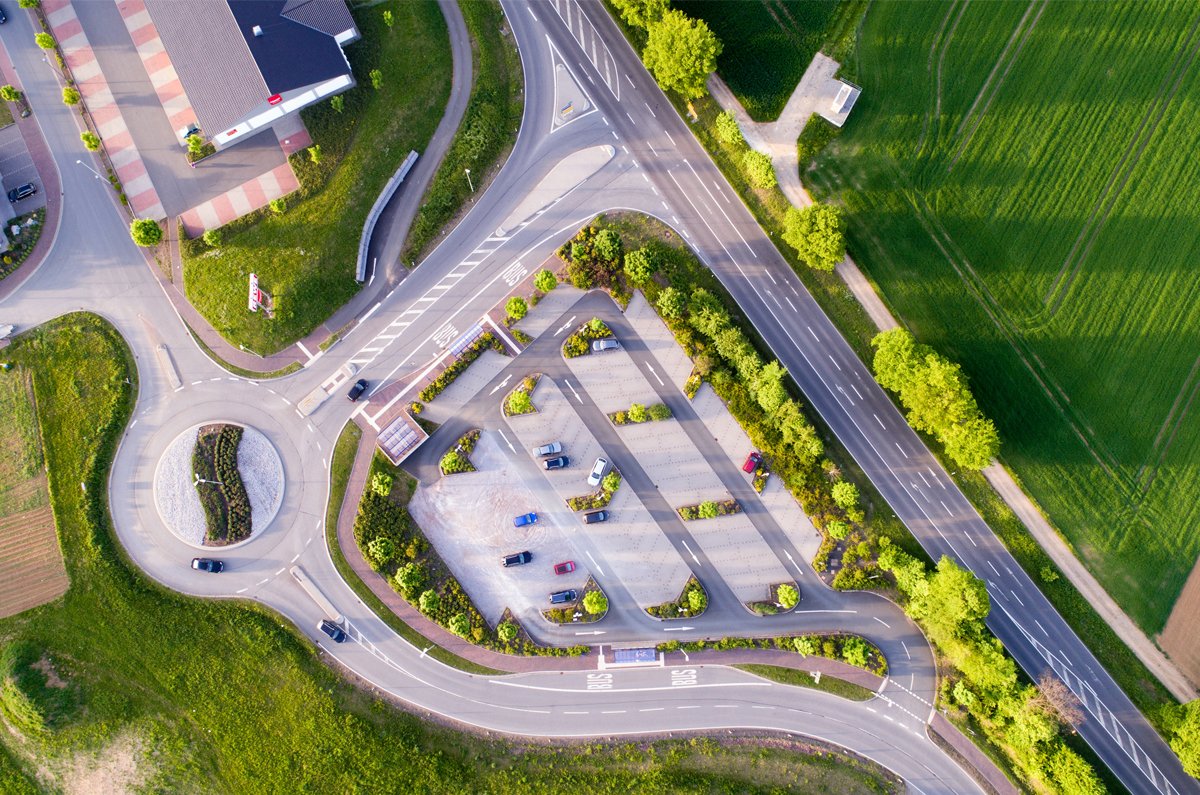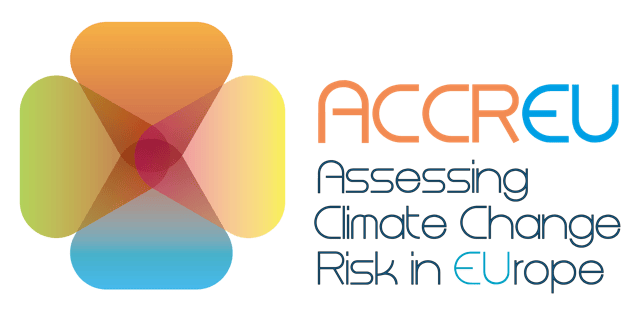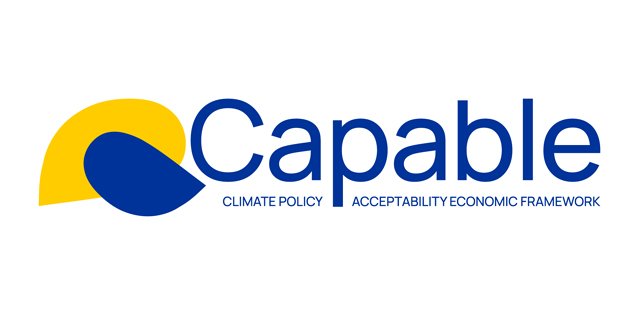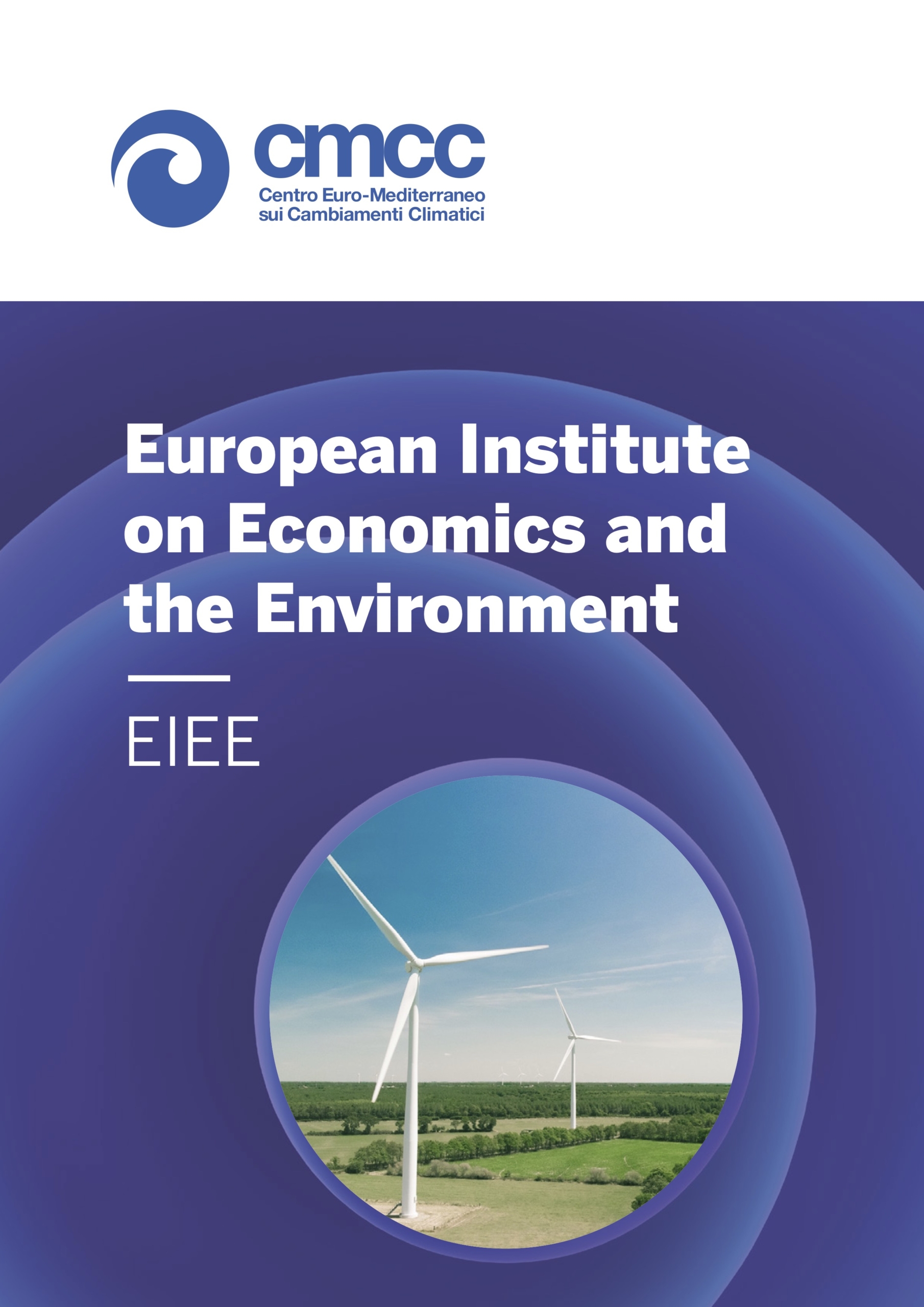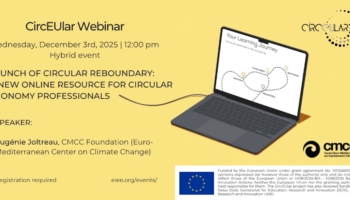Founded in 2018 by CMCC in a transatlantic alliance with Resources for the Future (RFF), EIEE has since become a beacon in climate research. Our researchers and tools have proudly contributed to landmark global assessments, including IPCC reports.
EIEE stands at the intersection of environment and economics, evaluating sustainable and socially inclusive strategies to combat climate change and other major environmental challenges. We are committed to improving environmental, energy, and natural resource decisions through impartial socio-economic research and policy engagement. We are a central hub for research insights and policy solutions, within Europe and internationally.
Research Avenues
At EIEE, we delve deep into:
- Evaluation of strategies towards net-zero emissions and beyond.
- Quantitative Analysis of the socio-economic ramifications of environmental and climatic hazards.
- Frameworks to evaluate and inform policy design to promote environmental and social sustainability.
Our Expertise
Grounded in quantitative methodologies, EIEE also embraces qualitative and behavioral sciences to shape its research landscape. Our analytical capacity includes:
- Computational Models: A diversity of numerical approaches to studying the inter-relation between the environment, economy, and society.
- Empirical Methods: Data-informed approaches to illuminate the efficacy of policies to catalyze a green transformation and bolster societal resilience.
Multidisciplinary Approach
While our primary lens zeroes in on economic and policy paradigms, we champion a holistic, multidisciplinary perspective. Our team brings together fields like economics, applied mathematics, behavioral, political, and environmental sciences.
CMCC EIEE’s expertise combines multidisciplinary research areas, including:
- Sustainable Transitions to Net-zero and Beyond
- Environmental Impacts and Adaptation
- Climate, Finance, Macroeconomics, and Trade
- Environmental & Social Justice
- Innovation and Circularity
- Sustainable Behaviors
- Societal Changes and Political Economy
- Health and Migration
- Biodiversity
- Resilient Cities
Get in touch with us and discover more about our topics and contact points.
EIEE People
Director
Massimo Tavoni
European Institute on Economics and the Environment (EIEE)
Institute Manager
Monica Eberle
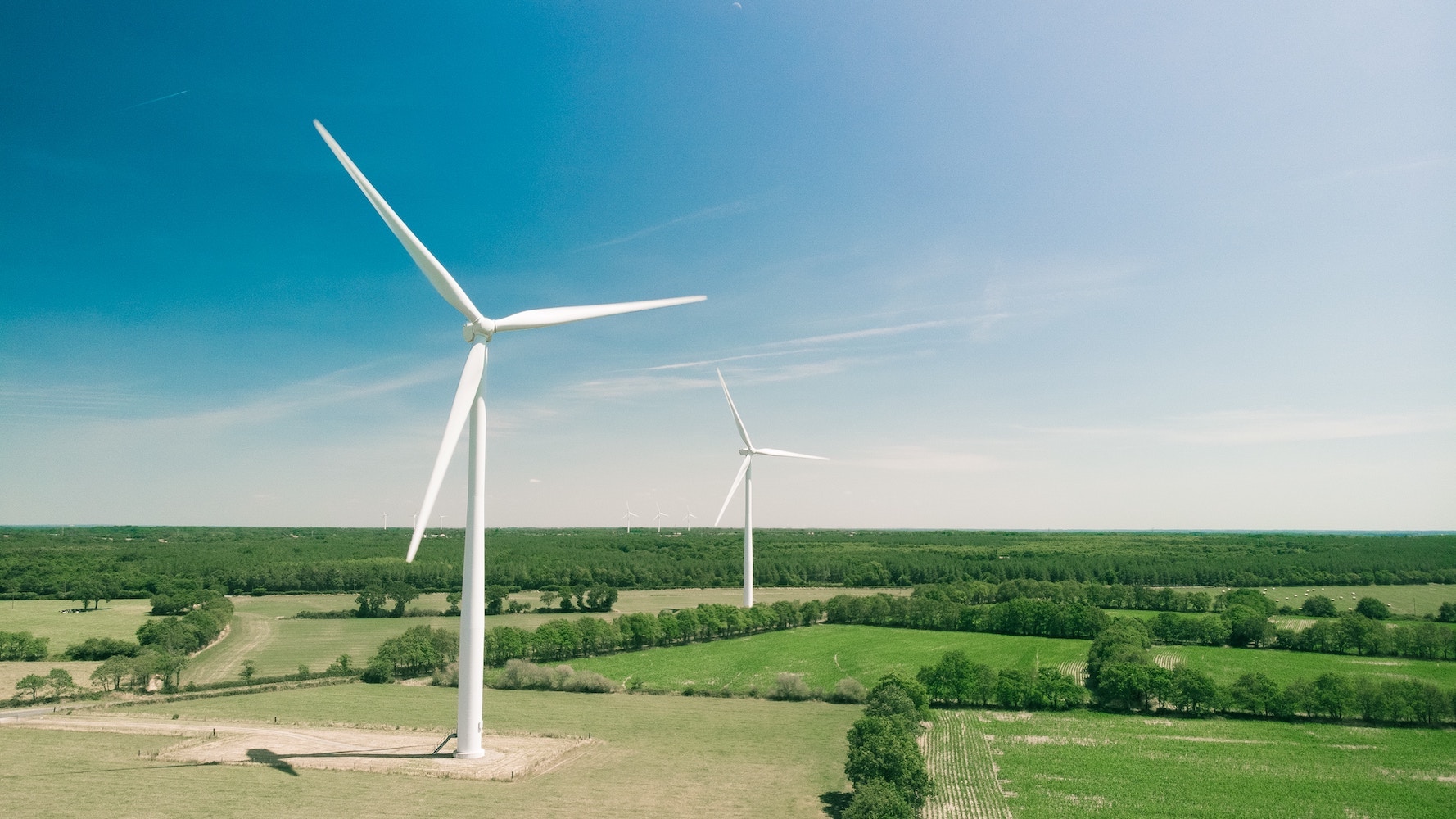
EIEE Topics
EIEE’s research activities lay the foundation for a net-zero future by designing integrated pathways that combine advanced economic modeling, climate impacts assessment and policy analysis. The institute’s work focuses on emission reduction strategies that address environmental, social and economic vulnerabilities by promoting innovation, low-carbon technologies and sustainable behavior.
Transforming Sustainably
Sustainable Transitions to Net-zero and Beyond
Achieving net-zero emissions is imperative for mitigating climate change and ensuring a sustainable future. This goal requires a profound and rapid transformation of our economic, environmental, and technological systems.
We focus on designing pathways to transition societies towards net-zero emissions and beyond. Our work involves using complex models to achieve both economic and environmental goals in a practical and comprehensive way. Our work defines the critical strategies for achieving climate stabilization. We create scenarios for reducing emissions that align with a broader sustainability agenda. This includes the adoption of low-carbon technologies, such as renewables, hydrogen, storage, and demand-side management. Additionally, our empirical research assesses the efficiency of climate policies globally and locally, aiming to provide insights that lead to more resilient societies.
Contact point: Lara Aleluia
Innovation and Circularity
Innovation in technology and in economic and social systems is necessary to decouple growth from greenhouse gas emissions and the overexploitation of resources. Innovation, digitalization and circularity play a key role in the achievement of climate neutrality.
We rely on an extensive toolbox of empirical methods – including econometric analysis, expert elicitations, big data analytics, systematic review methods, and structured qualitative case studies – to characterize the dynamics and drivers of, and the barriers to, low-carbon innovation, sustainable digitalization and circular practices. We use this empirical knowledge to inform innovation policy design and to develop scenarios of prosperous and resilient carbon-neutral futures characterized by pervasive and inclusive innovation, digitalization and the narrowing, slowing and closing of material loops in the economy.
Contact point: Elena Verdolini
Climate, Finance, Macroeconomics, and Trade
Investigating the role of climate change as one of the key drivers of macro-trends in the global financial, economic, and trade systems, and the interaction between them.
Climate change is a source of major macro-risks for the global financial, economic and trade systems. At the same time, finance, economic development, and international trade and cooperation can, if well governed, offer solutions to alleviate these risks while promoting green and inclusive growth, and expanding decent jobs. We use and advance CGE models and other quantitative methods to quantify the impact of climate and environmental risks on the production sectors, trade, competitiveness and their interdependence with the financial sector. We also study how distortions can be corrected and how trade and trade policies, finance and technological progress could underpin a sustainable transition.
Contact point: Ramiro Parrado
Safeguarding Society
Socio-Economic Assessment of Climate Impacts and Adaptation
Understanding and quantifying the implications of changing climate and material conditions on the economy, society, and the environment, while assessing their future evolution to design successful adaptive responses.
The economy, the society, and the environment are interconnected systems and any shift arising in one system triggers impacts into the others. We address this complexity with an integrated approach that combines robust quantitative methodologies such as general equilibrium models, integrated assessment model, agent-based models, statistical-econometric methods and machine learning algorithms. We offer systemic social and economic impact assessments in the medium and long term while identifying and evaluating viable adaptation responses across multiple sectors and domains such as health, agriculture, energy, infrastructures, labour, migration, coastal areas, biodiversity and equity.
Contact point: Enrica De Cian
Health and Migration
Promoting well-being in the context of rapidly changing material conditions involves assessing adaptation strategies like human migration and reducing future risks to human health.
We conduct empirical research and modeling to evaluate the current impacts and future projections on human health and displacement associated with climate change, air pollution, and natural resource availability. Additionally, we analyze the effects on the labor force and the spread of infectious diseases. Our approach incorporates satellite data and ground-based observations to assess the exposure and vulnerability of various social groups. We also examine the effectiveness of climate policies and their co-benefits.
Contact point: Shouro Dasgupta
Resilient Cities
Responding to multiple environmental and social crises through the advancement of urban areas as laboratories and forerunners of societal transformations engaging multiple level of governance.
We use mixed methods that integrate qualitative and quantitative approaches to understand the historical evolution of cities and, building on that, how cities are likely to transform in the future. Case studies and targeted interviews are combined with quantitative and spatial data to characterize vulnerability, exposure, and impacts due to environmental and social stressors of different social groups and to identify elements of successful climate adaptation and mitigation strategies in local contexts.
Contact point: Margaretha Breil
Rethinking the planet
Societal Changes and Political Economy
Solving environmental problems faces also societal and political challenges, highlighting the role of incentives, political actors, and the role of society as an electorate.
We design novel approaches to include political economy considerations in models and implement survey and experimental designs to elicit public opinion and preferences to understand the driving forces and implications of environmental policy proposals. Embedding societal dynamics and behavior into the modelling and policy evaluation works is crucial to understand issues such as policy acceptance, and distirbutional and other socioeconomic implications.
Contact point: Johannes Emmerling
Environmental & Social Justice
Addressing a range of environmental crises (pollution, climate change, the connected adaptation, mitigation, and transition strategies) requires inclusive approaches that ensure a fair and equitable transition in energy and material use.
We evaluate how socioeconomic, institutional, and cultural mechanisms have contributed to environmental, climate, and social injustice for marginalized groups through theoretical and empirical work. Focus areas include justice considerations in relation to air pollution, energy poverty, climate impacts, climate adaptation and mitigation. We also evaluate the behavior of different segments of society in relation to the transition away from fossil fuel sources of energy. We examine how those mechanisms carry forward into the future through theoretical and numerical models that incorporate equity considerations.
Contact point: Lorenza Campagnolo
Sustainable Behaviors
Solving environmental and ecological problems is impossible without understanding how people and organizations behave and promoting more sustainable practices.
We collaborate with companies and governments to design and evaluate behavioral interventions that encourage energy efficiency, low-carbon transformation, and broader sustainability. Our approach employs experimental techniques such as randomized control trials, online and laboratory experiments, to gauge the impact of various strategies, policies and programs. We integrate machine learning to analyze and model behavior based on data from smart sensors and other digital devices. We apply these approaches across different domains, to foster sustainable practices among a diverse set of agents, from individuals to firms, addressing different patterns of resource use and habits.
Contact point: Cristina Cattaneo
Biodiversity, Economics and Policy
Simultaneously addressing biodiversity loss and climate change to identify synergies and co-benefits, and understand trade-offs.
We use and develop economic-ecological models that integrate biodiversity and ecosystem services with the economic system. We use empirical approaches to estimate changes in the provision of ecosystem services as a response to human drivers. We develop and analyze climate change mitigation and adaptation scenarios that account for its impacts on the ecosystems. We analyze the effects of ignoring the connection and dependence of the economic system on the biosphere. We examine future pathways that aim to bend the curve on biodiversity loss and reach targets for climate change mitigation.
Contact point: Laurent Drouet
EIEE Publications
Advancing the Representation of Human Actions in Large-Scale Hydrological Models: Challenges and Future Research Directions
Galelli S., Turner S. W. D., Pokhrel Y., Ng J. Y.Castelletti A. , et al.
2026, Water Resources Research: Volume 61, Issue 7, doi: 10.1029/2024WR039486
Assessing long-term electricity market design for ambitious decarbonization targets using multi-agent reinforcement learning
Gonzalez J., Rodriguez-Pardo C., Savelli J., Di Bella A., Tavoni M.
2026, Energy and AI, doi: 10.1016/j.egyai.2025.100665
Broadening climate migration research across impacts, adaptation and mitigation
Cattaneo C., Shayegh S., Albert C., Alsina-Pujols M., Benveniste H., Borderon M., Conte B., Deuster C., Görlach J.-S., Haer T., Hoffmann R., Muttarak R., Ronco M., Schewe J., Wiśniowski A.
2026, Nature Climate Change, doi: 10.1038/s41558-025-02545-1
EIEE Booklet
Explore the European Institute on Economics and the Environment research highlights, showcasing key results that merge economic and environmental sciences to envision solutions for long-term sustainability.
Discover how EIEE contributes to building a green and prosperous society by analyzing climate stabilizing strategies, assessing socio-economic impacts and evaluating climate policy.


